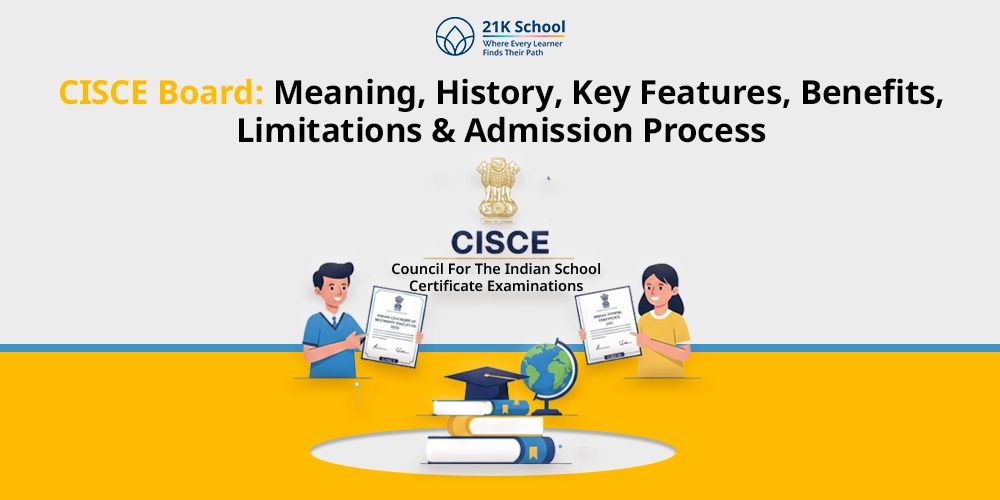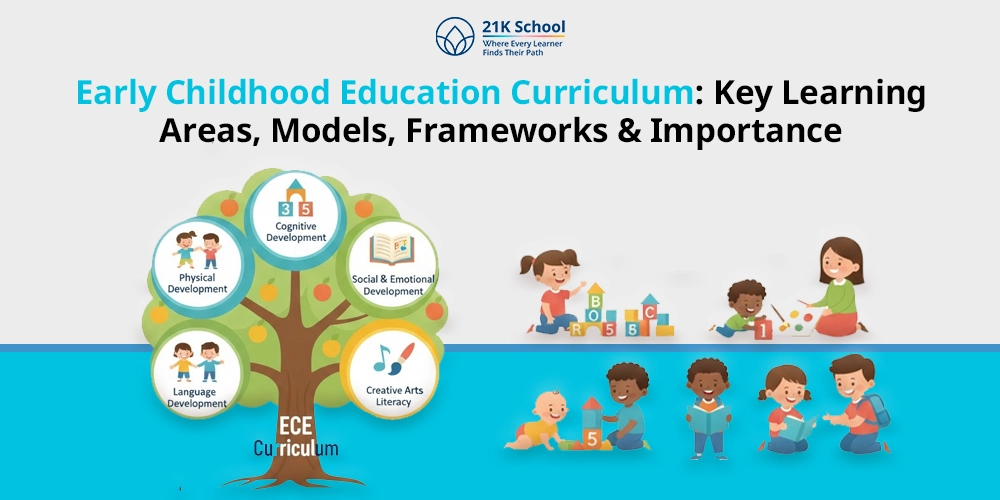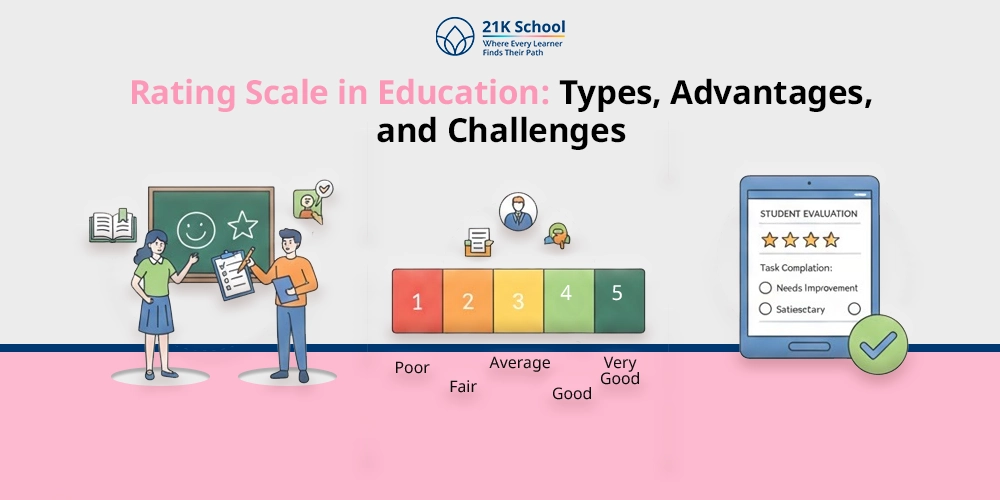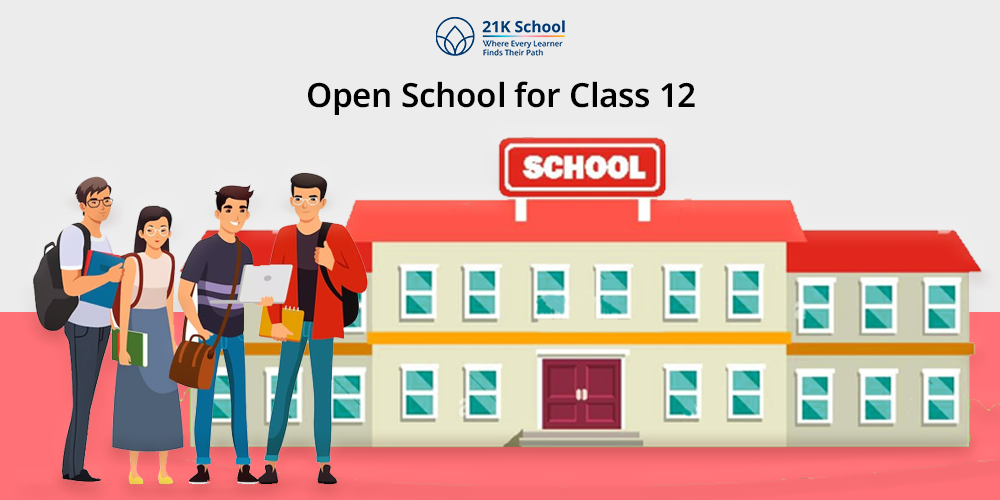
Are you thinking whether taking admission to an open school in class 12 is possible or not?
Open school for class 12 is an educational system that provides opportunities to students to take admission to class 12. Open schooling courses are mostly provided by the National Institute of Open Schooling (NIOS) , enabling candidates to enrol in class 12.
Open school provides education in a distance mode and provides them with flexibility and convenience to study. Students who have cleared their class 10th can apply for Open schools, probably in the NIOS.
Open schools are the same as traditional schooling methods, enabling students to study with the same curriculum and educational structure.
Unlike traditional schooling methods, open schooling provides an on-demand examination system, enabling children who have failed or didn’t attend the exam can easily apply for open schooling.
There are various online schools, such as 21K School, K8 school, DreamsTime school, etc., offering open schools to students of class 12th.
Table of Contents
What is Open School?
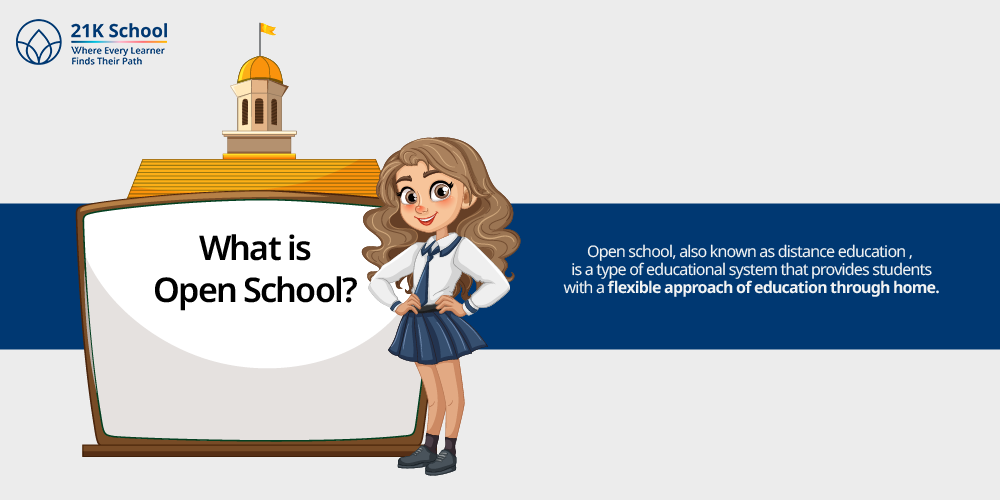
Open school, also known as distance education, is a type of educational system that provides students with a flexible approach of education through home. The term open school is a broad term that defines the education system that is accessible to every student.
Open school provides opportunities to students who are unable to attend regular schools for a variety of social, economic or personal reasons.
It offers opportunities for open and distance learning (ODL) at the school level primarily through home-based self-paced learning. Open school provides education to students from class 1 to 12, enabling them to study as per a flexible schedule.
In open based education, students can attend classes with the help of digital resources or online classes. Certificates from recognised open schools are equivalent to any regular boards, such as CBSE, ICSE, or State Boards.
Eligibility for Open School for Class 12
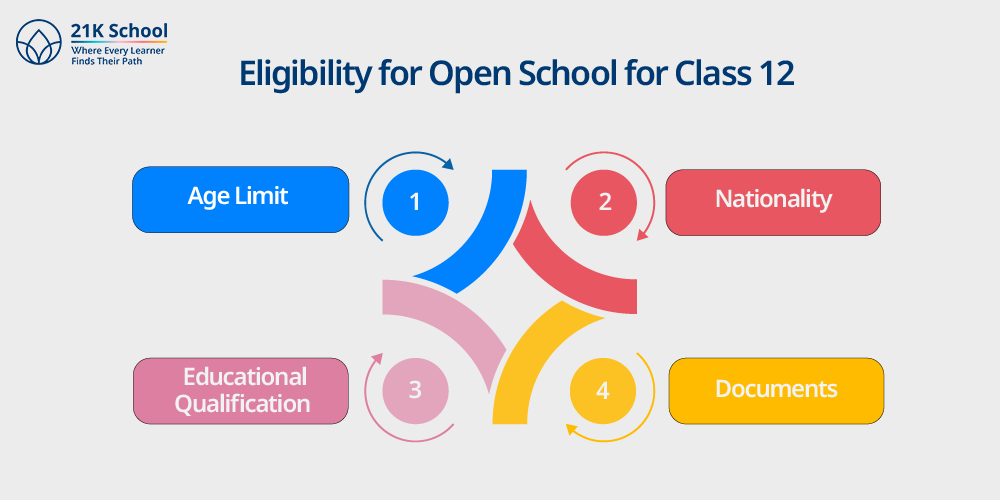
The eligibility criteria are the minimum requirements for admission to open schools in India. Open school allows students to complete their education without any hindrances.
To become eligible for the open schools for class 13, candidates have to meet the necessary requirements set by the open schools. In India, open schools probably denote the National Institute of Open Schooling (NIOS).
NIOS provides flexible opportunities for students to enrol in any class, especially 10th and 12th. Here are the eligibility criteria for open school for Class 12.
1. Age Limit
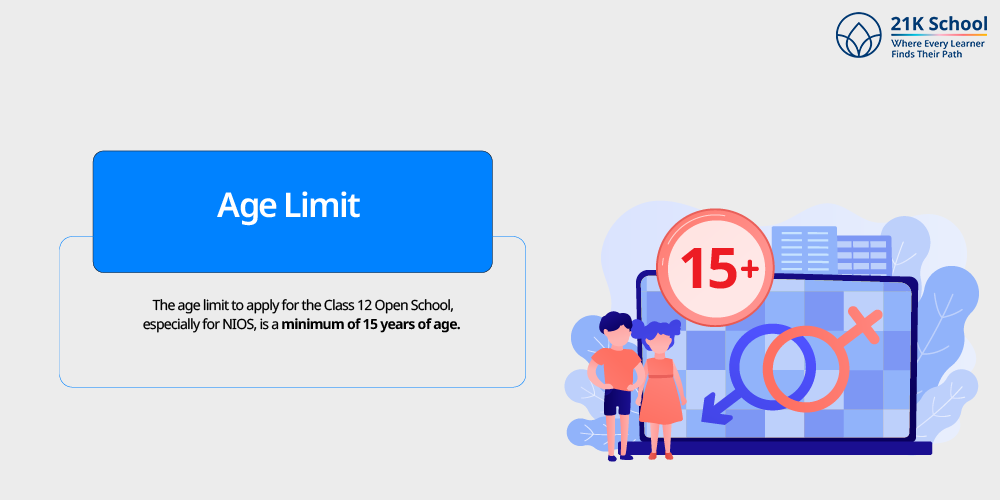
The age limit to apply for the Class 12 Open School, especially for NIOS, is a minimum of 15 years of age. There is no upper age limit of students to apply for open schools; candidates of any age can apply for the NIOS open school admission.
2. Nationality
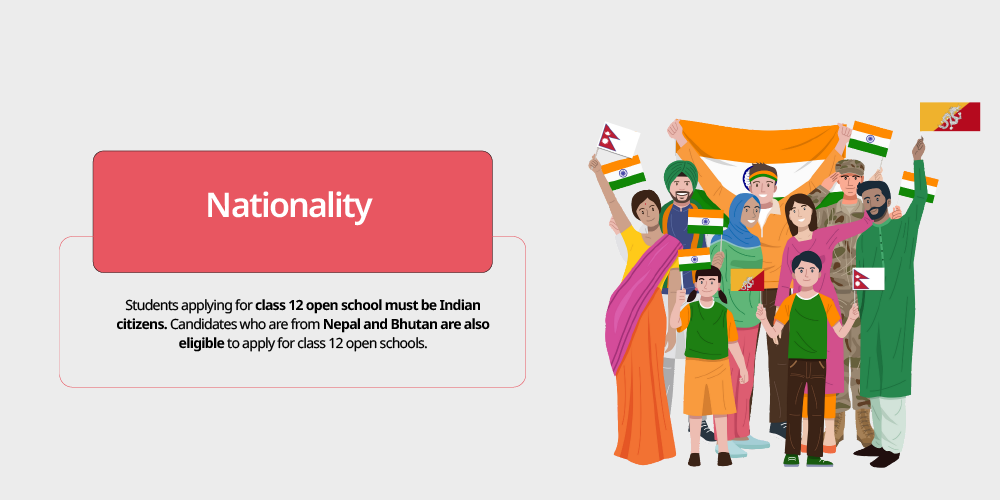
Students applying for class 12 open school must be Indian citizens. Candidates who are from Nepal and Bhutan are also eligible to apply for class 12 open schools.
3. Educational Qualification
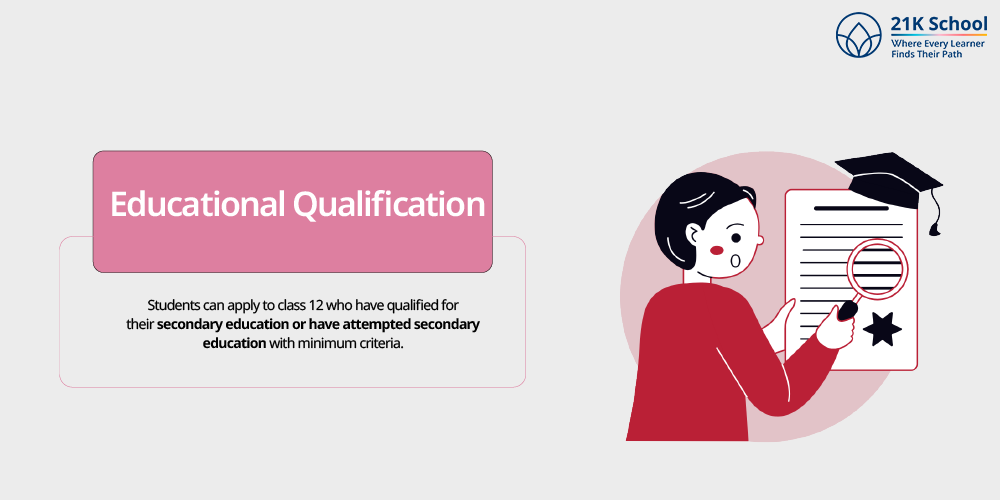
Students can apply to class 12 who have qualified for their secondary education or have attempted secondary education with minimum criteria. Students must have scored a minimum of 33% in their academics from a recognised board.
Children who have a gap year or have failed in class 11 can also apply for the open school, especially in the NIOS.
4. Documents
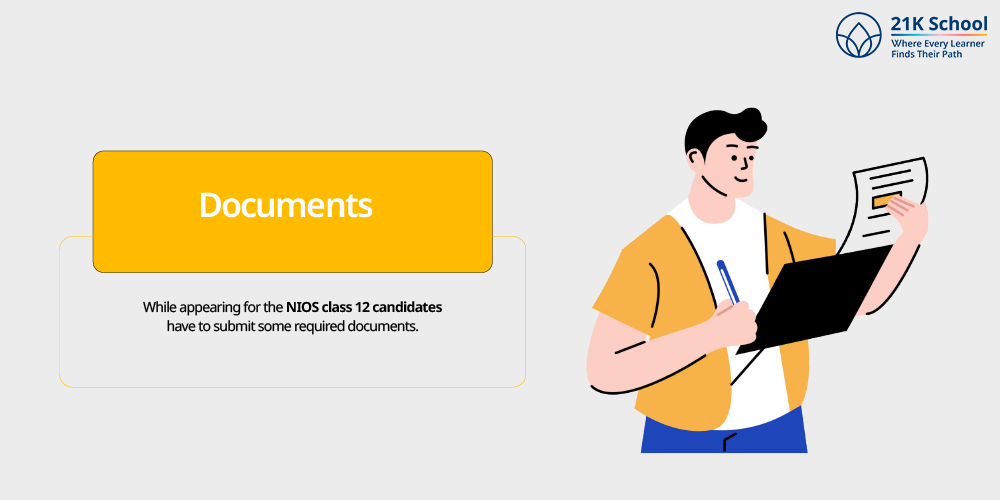
While appearing for the NIOS class 12 candidates have to submit some required documents.
Applicants need to submit a class 10th certificate, passport size photographs, a photo identity card such as Aadhar Card, Voter ID card, Passport, Disability Certificate if applicable, Caste Certificate if applicable.
It is essential for candidates to submit the documents in the correct format.
Types of Open Schools in India for Class 12
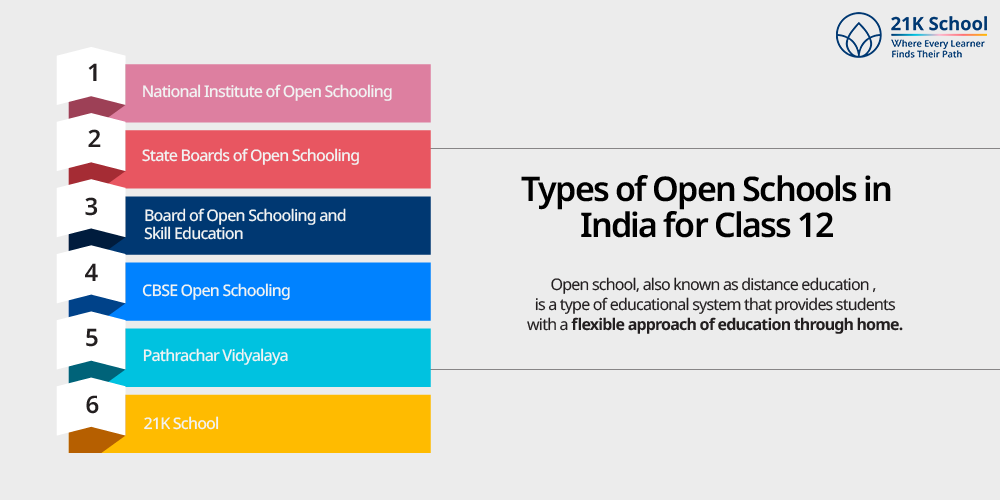
In India, there are multiple open schools which offer quality and flexible education. Open schools in India are government approved and are validated for higher education and career opportunities.
Open schools allow kids to engage in theoretical as well as practical education enabling them to make their base stronger. The following are the mentioned types of open schools in India for class 12.
1. National Institute of Open Schooling
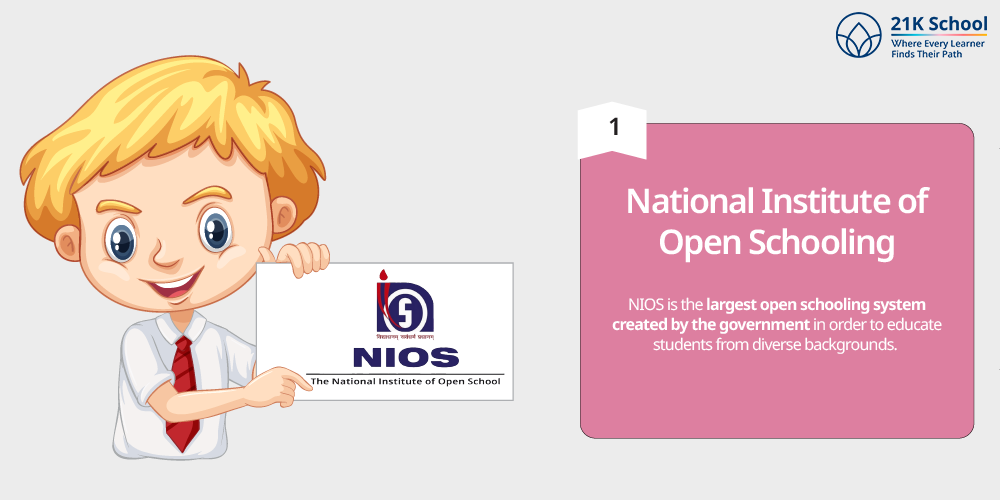
National Institute of Open Schooling (NIOS) is an autonomous board under the Ministry of Education. NIOS is the largest open schooling system created by the government in order to educate students from diverse backgrounds.
It uses a flexible and student-centred learning approach to provide secondary and senior secondary education. With NIOS, students can select courses based on their interests and desired careers, allowing them to learn at their own speed.
NIOS provides autonomy to students, children who have failed in their examination or didn’t attempt the exams can appear for the exam without any hindrances.
2. State Boards of Open Schooling
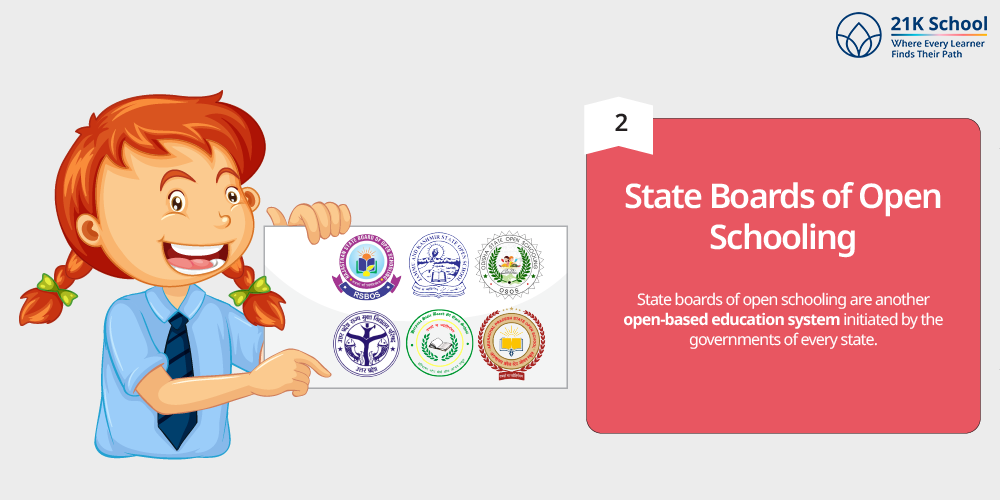
State boards of open schooling are another open-based education system initiated by the governments of every state. Every state has their own open schooling boards, which meet the needs of every student.
These state boards provide flexible learning options for students who may not be able to attend traditional schools for a number of reasons, such as personal circumstances or financial constraints.
By incorporating regional languages and locally relevant subjects into the state board curriculum , education becomes more accessible and culturally appropriate.
3. Board of Open Schooling and Skill Education
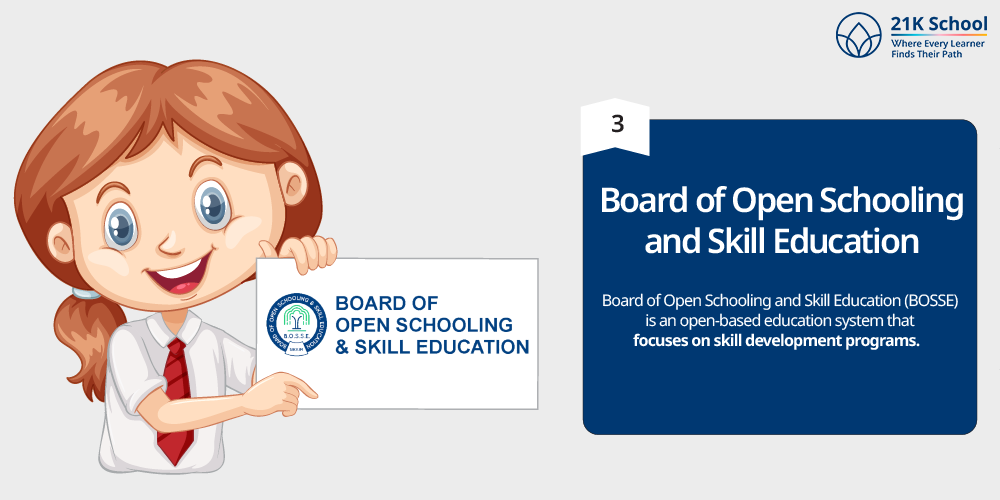
Board of Open Schooling and Skill Education (BOSSE) is an open-based education system that focuses on skill development programs. BOSSE provides vocational education and prepares students for future career opportunities.
Academic subjects and the development of practical skills are combined in the BOSSE curriculum.
Students who use this approach are prepared for both immediate employment and future study by placing a strong emphasis on developing skills. BOSSE aims to break the barriers between traditional education and modern education .
4. CBSE Open Schooling
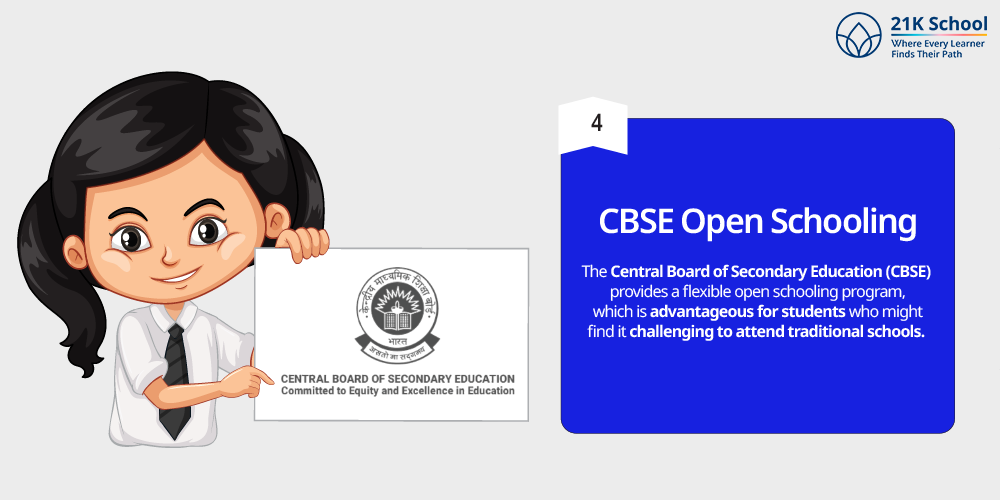
CBSE open schooling is a government board that offers remote learning opportunities. The Central Board of Secondary Education (CBSE) provides a flexible open schooling program, which is advantageous for students who might find it challenging to attend traditional schools.
Students can receive secondary and senior secondary education through CBSE Open Schooling, which provides a framework that is both structured and flexible. Many private schools and online schools offer distance education affiliated to CBSE Open Schooling.
CBSE open schooling provides opportunities for students who are working candidates or who stay in remote areas. This program provides students with multiple streams and subjects, allowing them to pursue according to their interests and career goals.
5. Pathrachar Vidyalaya
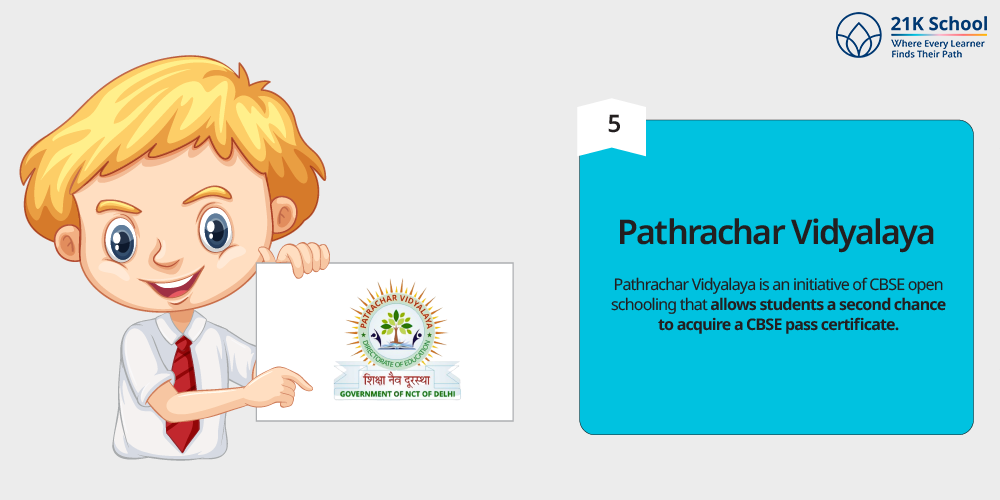
Pathrachar Vidyalaya is an initiative of CBSE open schooling that allows students a second chance to acquire a CBSE pass certificate.
Pathrachar Vidyalaya is an open school program established to educate students who are unable to attend traditional schools due to personal or social barriers.
This project aims to create a flexible learning environment where students can move at their own pace and according to their own needs. In order to ensure that students receive a well-rounded education.
Pathrachar Vidyalaya offers a comprehensive curriculum that combines academic subjects with life skills training.
6. 21K School
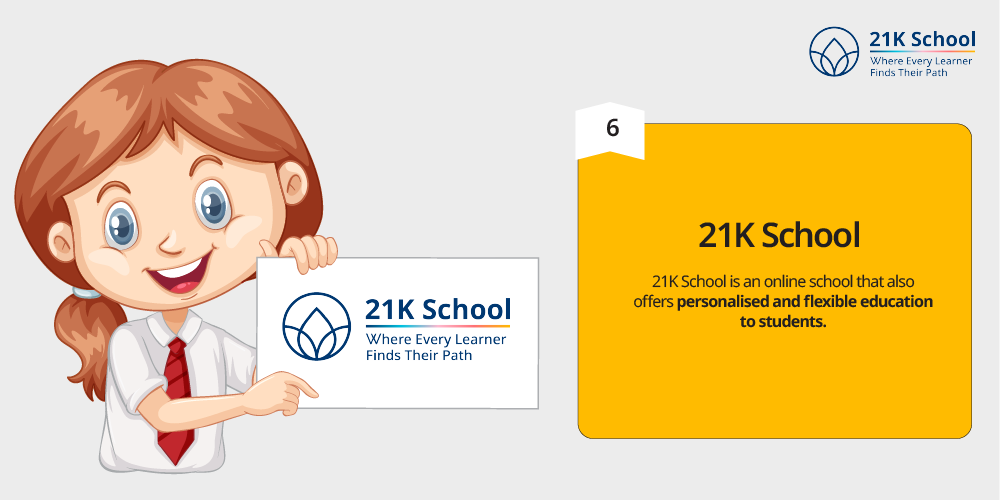
21K School is an online school that also offers personalised and flexible education to students.
21K School also provides admission to candidates to 12th standards enabling them to continue their studies without any hindrances.
21K School provides open education based on National Institute of Open Schooling (NIOS). The flexibility of 21K school promotes confidence among students as well as helps in developing inclusive learning environment.
Benefits of Open School
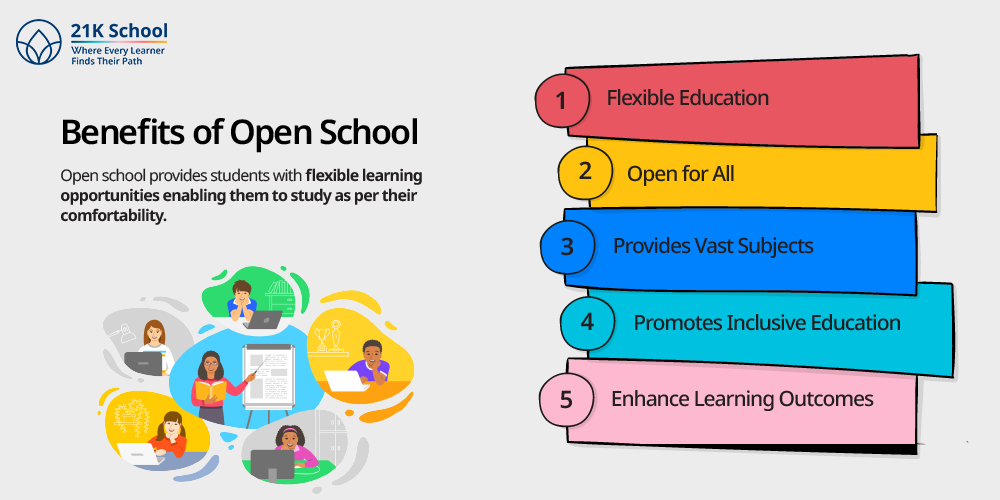
Open school provides students with flexible learning opportunities enabling them to study as per their comfortability. Open school helps in bridging the gap between traditional learning methods and distance education.
Through open schooling, mostly NIOS candidates can enhance their learning outcomes. Open schooling provides opportunities to save one academic year for students who have failed to pass their secondary or senior secondary schools. Here are the following mentioned benefits of open school.
1. Flexible Education
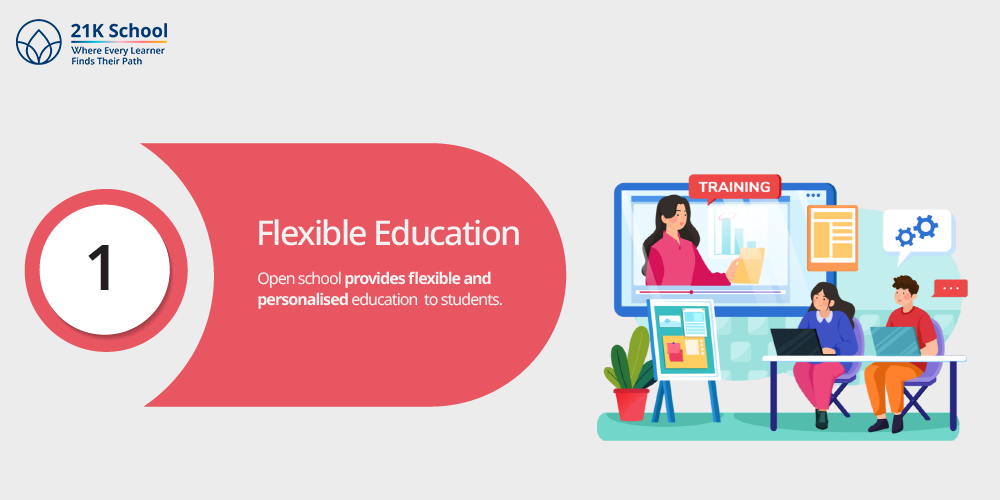
Open school provides flexible and personalised education to students. The flexibility of open schools provides online resources, self-paced learning and alternative assessment methods.
The flexible nature of open schools makes it easier for students to understand difficult ideas, encourages lifelong learning and allows them to pursue interests outside of the traditional classroom.
2. Open for All
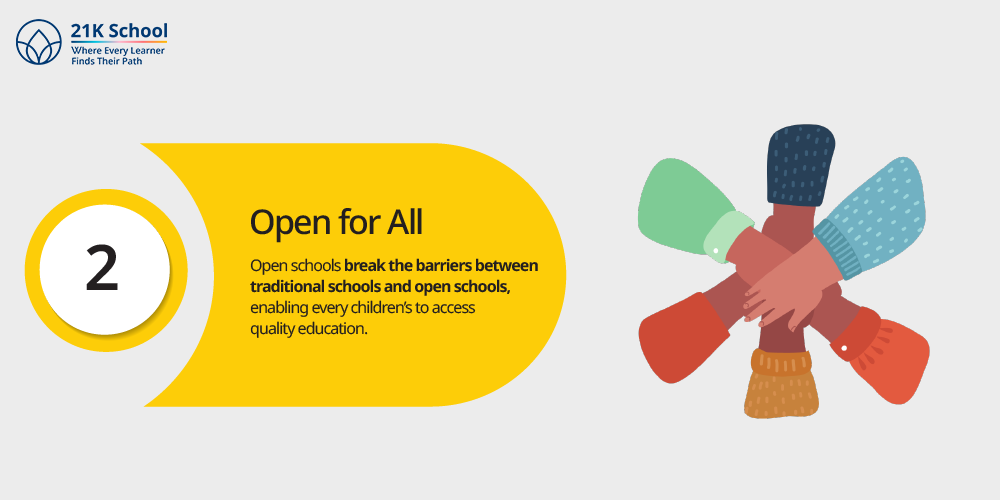
Open schools break the barriers between traditional schools and open schools, enabling every children’s to access quality education.
Through open schools, candidates can attend classes irrespective of any challenges or barriers. The diverse nature of education enables children to enhance their holistic development and promotes holistic education .
3. Provides Vast Subjects
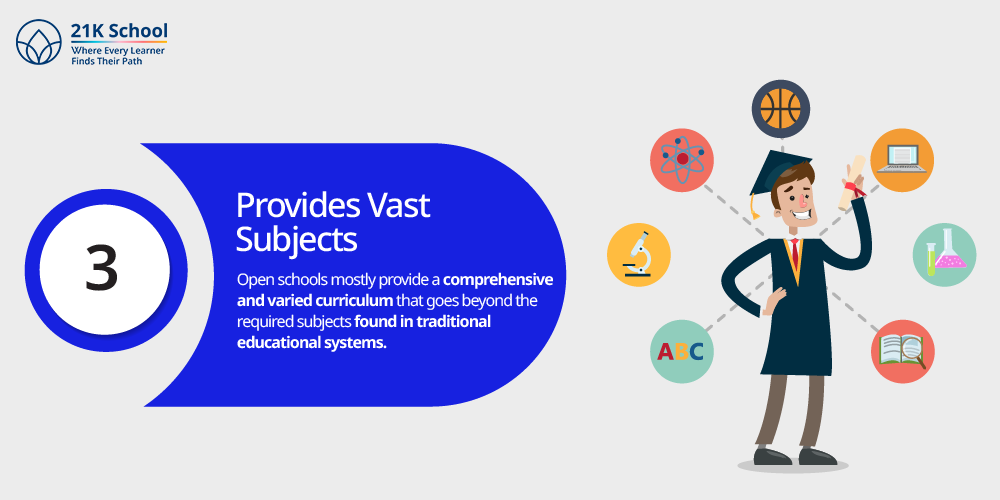
Open schools mostly provide a comprehensive and varied curriculum that goes beyond the required subjects found in traditional educational systems.
These programs cover life skills, technology, arts and vocational training in addition to the core academic subjects of science, math and language. The multiple subjects enable students to enhance their learning possibilities and make education more convenient.
4. Promotes Inclusive Education
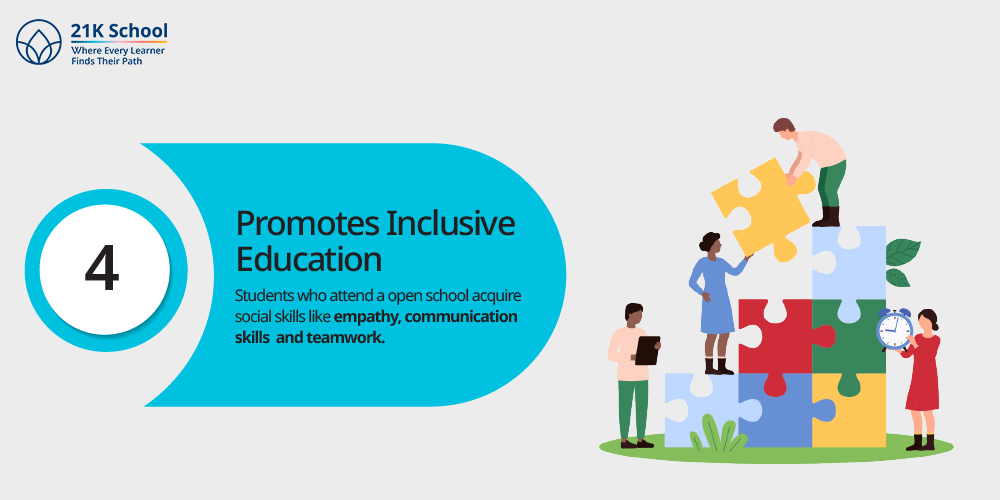
Open school promotes inclusive education , which allows students to learn from any background, irrespective of any physical challenges or hindrances. Students who attend a open school acquire social skills like empathy, communication skills and teamwork.
This inclusive approach promotes harmony in society by preparing students for real-world interactions with individuals of various backgrounds and abilities.
5. Enhance Learning Outcomes
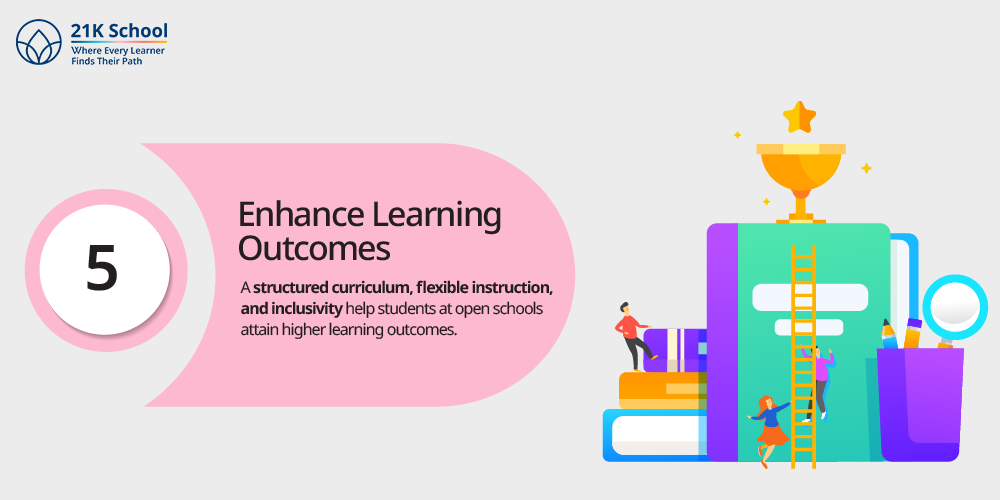
A structured curriculum, flexible instruction, and inclusivity help students at open schools attain higher learning outcomes.
Students who are engaged and motivated have a higher chance of academic success. Students not only achieve better academically but also acquire critical life skills like resilience, flexibility and problem-solving .
Wrapping up
For students looking for educational flexibility open schools in particular the National Institute of Open Schooling (NIOS) and several state boards offer a useful substitute.
Open schools serve a diverse student body including those who struggle in traditional educational settings with accessible admission requirements a varied curriculum and an emphasis on inclusive learning.
Open schooling is a popular choice because of its advantages which include individualized instruction the freedom to learn at ones own speed and the capacity to manage personal obligations and academic endeavors.
Open schools are essential in ensuring that high-quality education is available to everyone enabling students to fulfill their academic and professional aspirations as education continues to change.

